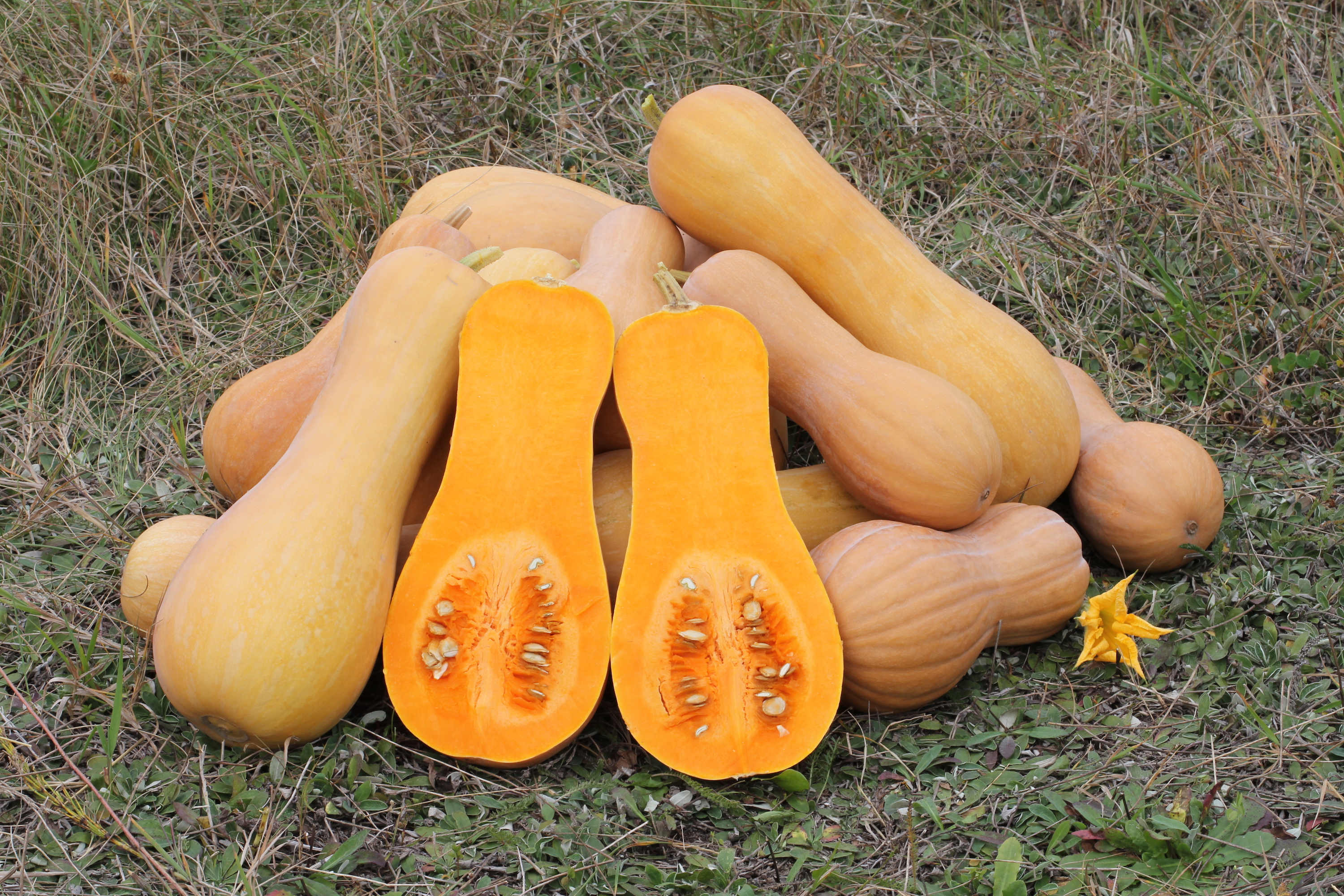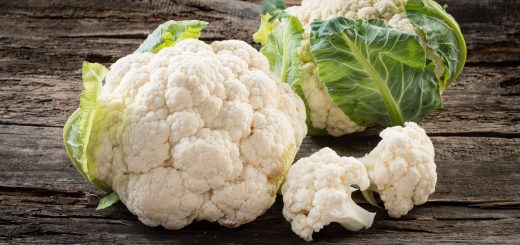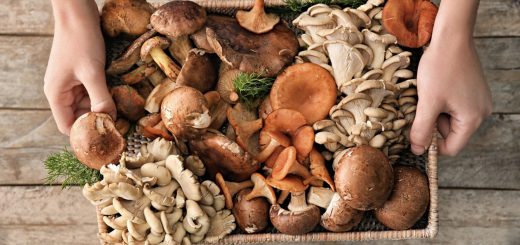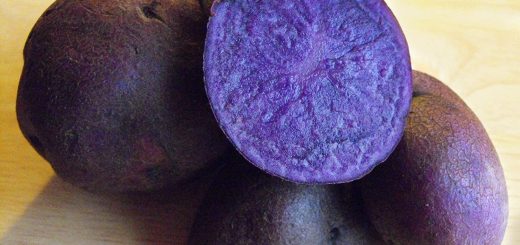Butternut Squash

Butternut squash is a winter squash belonging to the Cucurbitaceae family of field pumpkins. It has a sweet, nutty taste similar to that of a pumpkin. It has tan-yellow skin and orange fleshy pulp with a compartment of seeds in the bottom. When ripe, it turns increasingly deep orange, and becomes sweeter and richer.
Like other orange vegetables such as carrots and sweet potatoes, butternut squash is packed with beta carotene. Our bodies can use this in two ways. If a body needs Vitamin A, it can turn some of the beta carotene into Vitamin A. The rest remains in the system as a powerful antioxidant that can combat free-radicals. Butternut squash is a good source of fiber, vitamin C, manganese, magnesium, and potassium; and it is an excellent source of vitamin A and vitamin E.
Although technically a fruit, butternut squash is used as a vegetable that can be roasted, toasted, puréed for soups, or mashed and used in casseroles, breads, and muffins. Butternut squash can be substituted for pumpkin or other winter squashes in any recipe.
Once at home, well-ripened squash can be stored for many weeks in cool, humid-free, well-ventilated place at room temperature. However, cut sections should be placed inside the refrigerator where they keep well for few days.


